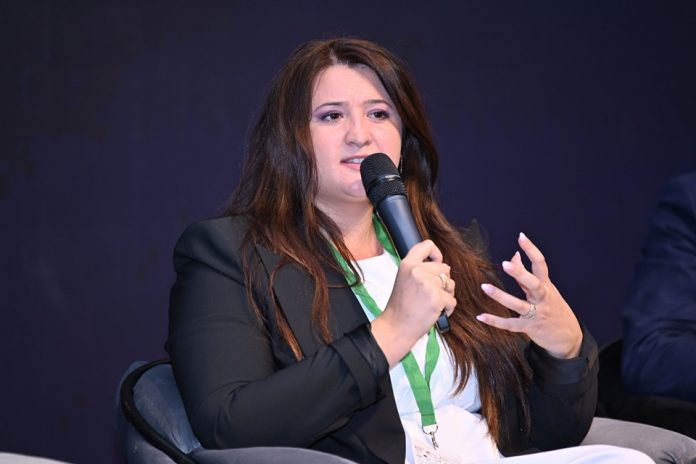“The deposit-return system meant an extraordinary partnership that we built together with our colleagues in the industry and RetuRO. It is an example of innovation due to the fact that each of us understood the impact that such a project has on the environment.
We had to convince investors to invest millions of euros based on an idea, it was a simple idea a few years ago. Our efforts to develop this system have been phenomenal. Our teams benefited from the trust of the top management and thus millions of euros were invested in an innovative project. From my point of view, it is a fantastic example of leadership and trust in sustainability projects,” Corina Dospinoiu, Sustainability Director, Auchan Retail Romania said during Sustainability in Business Forum organized by The Diplomat-Bucharest and Sustainability Today.
“Other projects that we will initiate soon target the area of food waste. We are preparing an AI-based project to optimize fruit and vegetable orders, to ensure a healthy diet and impeccable product quality in our stores.
We have several projects that should help us understand the data and turn this data into extremely useful levers to offer customers sustainable products at the best possible prices. These projects that we will implement will, at the beginning, have an internal impact, whether we are talking about carbon tracking tools or non-financial reporting automation tools, these tools will give us all the information we need so that the jobs transversal (purchases, transport, the technical department) to optimize their activity, and later the impact to be seen in the pockets of the final customers. At the end of the day, sustainability must be economical, both for the company and for our customers. We are very strongly committed to offering economic sustainability to our clients.
Food waste is generated throughout the value chain, starting from production, distribution, retail and at each of us at home. We all have a role to educate ourselves. We do this internally with all our colleagues. We have courses on food waste, which they follow annually so that we remember the importance of fighting food waste.
In our stores we have the Zero Waste project, through which we want to educate and involve customers in sustainability solutions regarding combating food waste.
Each entity on the value chain must look in its own backyard and take measures to combat food waste, especially since it represents 10% of carbon emissions. Through our 2030 climate plan, we aim to discuss with our suppliers and understand the impact on each element of their activities (energy, production methods, food waste, etc.). We will work together with our suppliers on this topic, so that, in the end, the products that reach the shelves have more affordable prices.”




